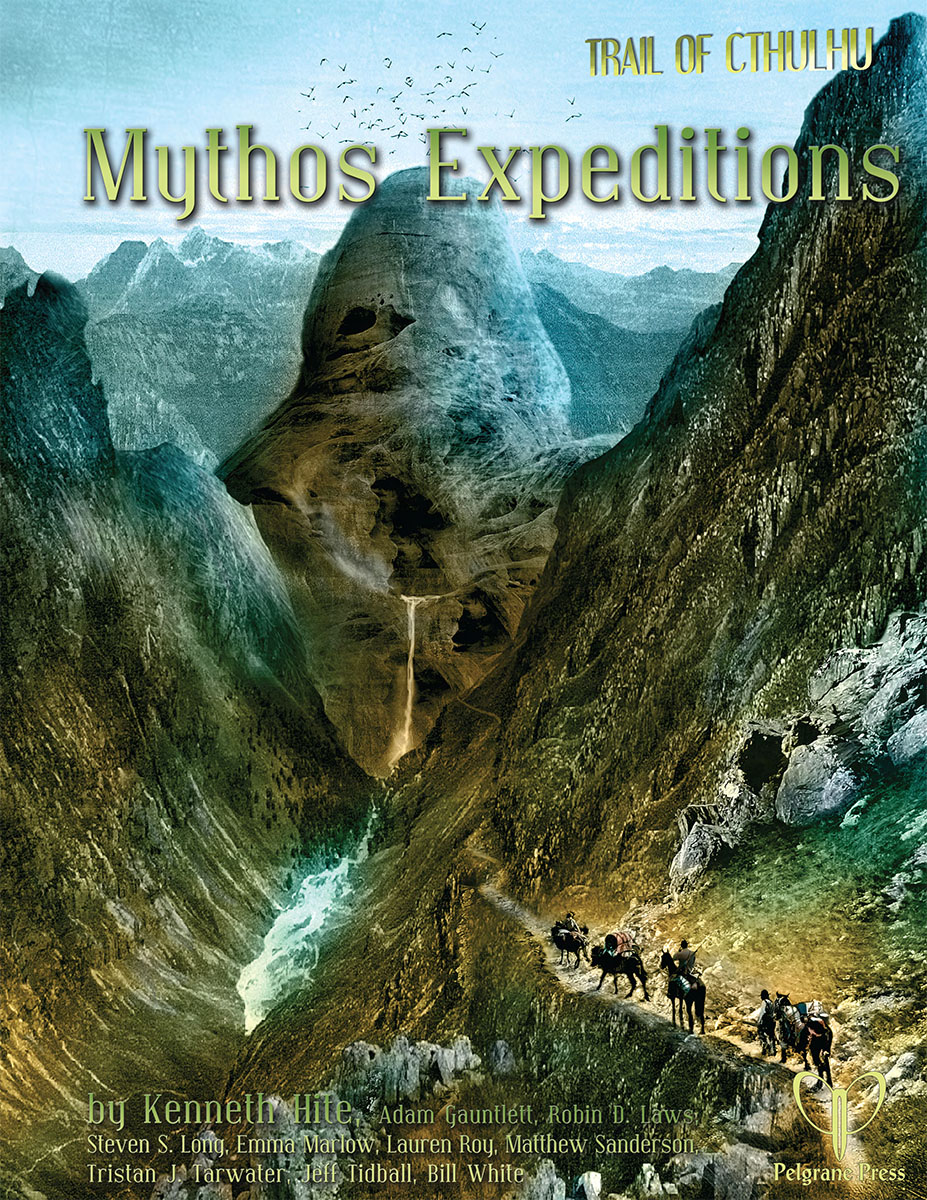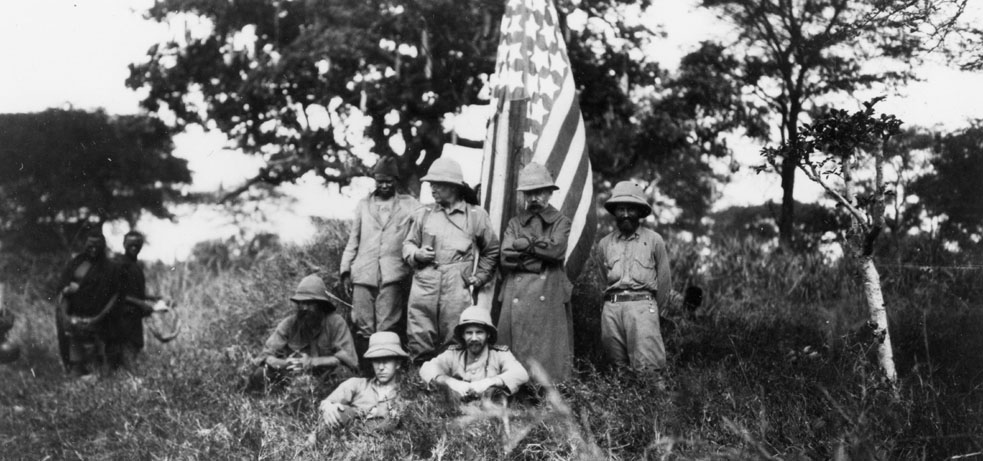When running a globetrotting historical Trail of Cthulhu game — whether set in the 1890’s, the 1920’s, or the 1930’s — it’s not unusual for the investigators to find themselves trekking out into the wilderness, akin to those expeditions described by H.P. Lovecraft in The Shadow Out of Time or At the Mountains of Madness.
 Pelgrane Press has actually published an entire collection of such scenarios in Mythos Expeditions, which I understand to also include a rather robust set of rules for organizing and running such expeditions. I’m afraid I don’t actually own that particular volume, and the rules you’ll find here are unrelated to whatever full-fledged mechanics you might find there. What I wanted/needed was a relatively streamlined set of mechanics that could be used to meaningfully organize expeditions as part of a larger campaign in which they were not necessarily the primary focus, but nevertheless a significant part.
Pelgrane Press has actually published an entire collection of such scenarios in Mythos Expeditions, which I understand to also include a rather robust set of rules for organizing and running such expeditions. I’m afraid I don’t actually own that particular volume, and the rules you’ll find here are unrelated to whatever full-fledged mechanics you might find there. What I wanted/needed was a relatively streamlined set of mechanics that could be used to meaningfully organize expeditions as part of a larger campaign in which they were not necessarily the primary focus, but nevertheless a significant part.
EXPEDITIONS
These guidelines assume a modest, personal expedition consisting of a fairly typical group of investigators, perhaps one or two local guides, and their porters. They’re not appropriate for larger groups, industrial-scale explorations, or military expeditions into the wilderness (although adapting them to such might not require too much effort).
SUPPLIES: The supplies for an expedition require a 1-point Credit Rating spend per week of supplies.
PORTERS: The expedition requires 1 porter per investigator, plus 1 porter per guide. It generally costs a 1-point Credit Rating spend per porter, but Bargain reduces the total cost by 1-point. A 1-point Bargain spend halves the total Credit Rating cost for porters.
If an expedition will last for more than three weeks, the number of porters must be doubled (due to the increased number of supplies to be carried).
GUIDES
In broad terms, a guide will provide a pool of Outdoorsman points (and other expertise which may or may not be useful). In certain circumstances, guides may also possess specific navigational knowledge (i.e., the location of a “lost” locale or local watering holes) or other advantages (friendship with local, usually hostile tribes).
TRACKLESS WASTE: Navigating through a trackless waste is not trivial. It requires a 1-point Outdoorsman spend simply to navigate out of the waste. (For example, getting to the Atlantic coast from the midst of the Amazonian jungle.) Getting to a specific point of your choosing is a 2-point Outdoorsman spend.
However, a map or compass each counts as a 1-point Outdoorsman spend. (So if you have the Outdoorsman skill, a map, and a compass, you can get to a specific point of your choosing without any spend.)
FINDING A “LOST” LOCALE: Sometimes you don’t actually know the specific point at which you can find whatever it is you’re looking for. (For example, you might be searching for the lost city of Irem.) For each week of the expedition, the expedition rolls 1d6. Assuming the location actually exists and is in the region they’re searching for it, they’ll find it if the die rolls “6”.
The Investigators and their guides can spend points to enhance the search. For every 3 points spent, they can roll an additional d6. Such spends could come from Outdoorsman, Archaeology (analyzing ruins throughout the area), Anthropology, Oral History (questioning locals), or any other skill for which a logical purpose can be proposed. (This will be highly dependent on the particular circumstances of the specific locale being searched.)
INTERPRETERS
Whether on an expedition or not, any Investigator without an interpreter who cannot speak local languages must make 1-point spends with Interpersonal abilities that would otherwise function without a spend. Acquiring an interpreter generally requires Bargain or Streetwise.
Acquiring an interpreter without Assess Honesty may result in hiring an unreliable fellow. Such an interpreter may do something that could inconvenience or even harm their employer (abandoning them, stealing from them, warning local cultists, etc.).
OTHER CONCERNS
Depending on where the expedition is located, it may be appropriate to use a Heat track (or similar environmental impact mechanic). Investigators who insist on hauling large quantities of explosives into the outback will find themselves saddled with additional logistical concerns.













> For each week of the expedition, the expedition rolls 1d6.
Something’s missing — what do you do with the d6 result?
Fixed!